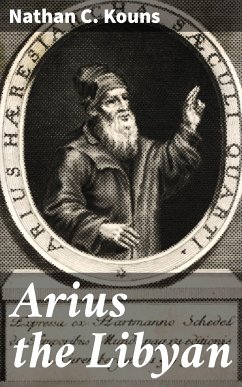In "Arius the Libyan," Nathan C. Kouns masterfully weaves a historical narrative that explores the life and philosophical journey of the early Christian theologian, Arius. Set against the vibrant backdrop of the early 4th century, the book delves into the theological disputes that defined early Christianity, utilizing lush prose and rich character development to bring to life the complexities of faith, identity, and the search for truth. Kouns combines meticulous research with a narrative style that is both accessible and engaging, offering a profound exploration of the challenges faced by a thinker labeled a heretic by his contemporaries. Nathan C. Kouns, a scholar with a passion for religious history and its impact on contemporary thought, draws on his extensive knowledge of early Christian texts and doctrinal conflicts to craft this compelling work. His academic background and personal interest in the interplay between faith and reason illuminate Arius's motivations, presenting him not merely as a historical figure but as a relatable individual navigating the tumultuous waters of belief and community. Kouns's research not only highlights the individual struggle of Arius but also reflects the larger tensions within the early church. This book is highly recommended for readers interested in early Christian history, theological debates, and the personal stories that shaped religious thought. Kouns'Äôs nuanced portrayal of Arius invites readers to reconsider the implications of heresy and orthodoxy while engaging deeply with the questions that remain relevant today. "Arius the Libyan" is an essential read for both scholars and general readers alike, offering a revealing glimpse into the rich tapestry of early Christian thought.
Dieser Download kann aus rechtlichen Gründen nur mit Rechnungsadresse in A, B, BG, CY, CZ, D, DK, EW, E, FIN, F, GR, H, IRL, I, LT, L, LR, M, NL, PL, P, R, S, SLO, SK ausgeliefert werden.









